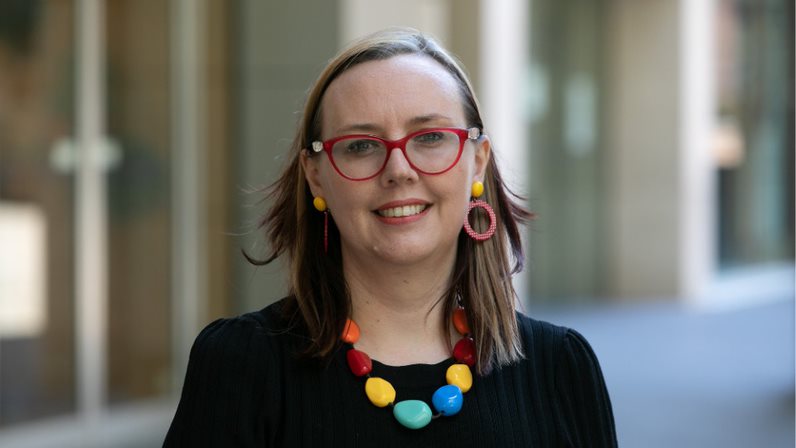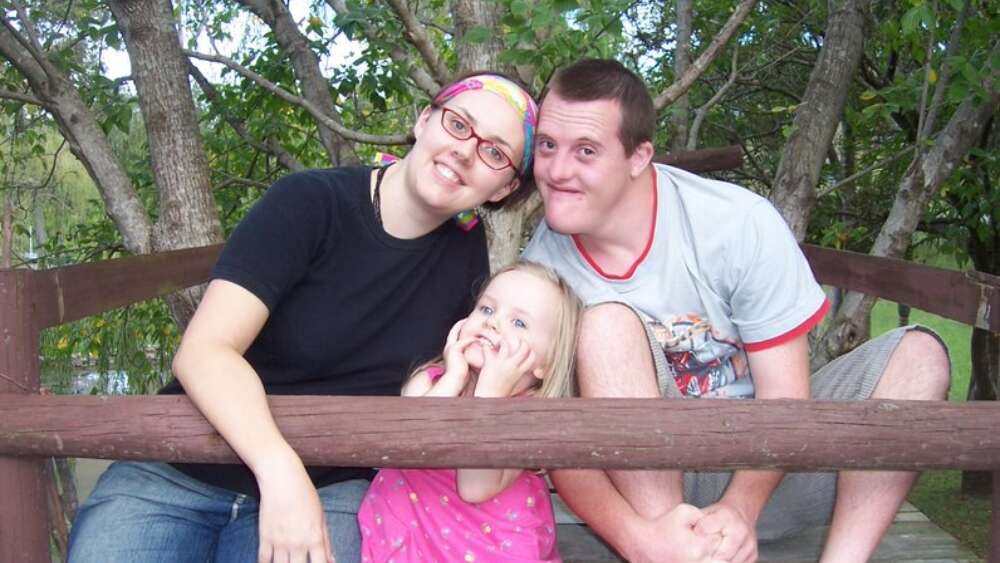Louise Gosbell recently published guidelines on how churches can become more accessible for people living with disability. Here she shares the passion that drives her work.
I’ve often shared how I first became interested in disability because of the experience of my brother-in-law with Down Syndrome being excluded from serving in his church community on the basis of his disability. This was certainly the starting point of my interest and research in this space. But this incident no longer reflects the whole story.
Since that time my family has been blessed to have a daughter with a range of disabilities, who continues to enrich our lives daily as we see God at work in and through her. And my own experience of disability has also shifted, first through a permanent pelvic injury sustained in childbirth 15 years ago and then, more recently, through the development of a significant cardiac and respiratory condition that has completely turned my life upside down.
But in many ways, my experience of disability is not that unusual. Approximately 18 per cent of Australians live with some kind of disability. That’s almost one in five people.
Most of us will spend more than eight years of our lives with some kind of disability.
Not only that, but in countries like Australia with an ageing population, it is estimated that most of us will spend more than eight years of our lives with some kind of disability.
In some cases, people are born with a disability, such as my brother-in-law John with Down Syndrome. But even with genetic conditions, sometimes these aren’t diagnosed until later in life, as was the case with our daughter. Others, however, live with acquired disabilities as the result of an injury or illness like mine.
But what is clear is that disability is an inevitable part of the human experience in present lives. Statistically speaking, we will encounter the experience of disability in our lives and in the lives of those we love, as well as in many others we encounter in life.
Given these statistics on the prevalence of disability, what comes as a surprise to me is how many people in churches claim they have no connection at all with a person with disability. According to data from the National Church Life Survey, almost 50 per cent of people answering the questions circulated about disability said that they did not personally know anyone living with disability, either in their family, among their friends or in their church communities.
It seems to me there is a significant disconnect here between the Australian statistics on disability and the experiences of many churchgoers across Australia. How is it that 18 per cent of our population live with disability and yet almost half of those surveyed about disability do not know anyone with a disability? What might we be doing – or not doing – in our church communities that means churches are not always as welcoming and inclusive for people with disability as they could be?
Many church communities are simply not aware of the barriers that exist that can prevent a person with a disability from being able to attend church.
My experience of researching and writing about disability in the Christian context over many years has shown me that there is a genuine desire among most Christians to be welcoming and to create inclusive church communities for people with disability. However, many church communities are simply not aware of the barriers that exist that can prevent a person with a disability from being able to attend church.
There are barriers that not only might prevent people from being able to get into church but there are also many other barriers that can prevent people with disability from being fully active and participating members of the church. More than simply being present on Sundays, many people with disability want to be able to serve on rosters, attend Bible study groups, attend church weekends away, participate in youth programs and be part of the life of the church more broadly.
As church communities, if we aren’t aware of the barriers that limit participation for people with disability, then we don’t know what we can to do help remove or reduce those barriers.
In writing Everyone Welcome: Accessible Church for All – guidelines for the Sydney Diocese of the Anglican Church, produced on behalf of their Social Issues Committee – I spent many hours with people living with disability and their families and carers. I heard stories – both heart-warming and harrowing – about people’s experiences in churches. People shared openly about what they wished their churches knew about the unique challenges faced by people with disability trying to participate in their church community.
In Everyone Welcome, I have tried to outline some of the barriers that can prevent full participation for people with disabilities in churches, as well as outline some of the steps church communities can take towards reducing or even removing those barriers altogether. Some of these steps are lengthy and expensive. No one who has ever been part of a team requesting structural changes to their church building will tell you that installing a ramp is an easy task!
But so many steps cost little to no money or effort, and they can make a world of difference to the members with disability you already have in your churches and those who might attend in the future. Large print bulletins, clearer fonts on printed materials, allocated seating for people with vision or hearing loss are all steps towards ensuring greater participation that can be done with little effort.
It just requires us to take time to listen to the stories and experiences of those with disabilities in our communities so that we can make our Christian communities accessible for all.

Louise is Principal of Mary Andrews College in Sydney and writes on disability and the Bible. She is also Sydney Coordinator for CBM Australia’s Luke 14 program, on the resource team for Our Place Christian Communities, a board member of Embracing Ministries and a member of the core council of the Institute on Theology and Disability in the US.


